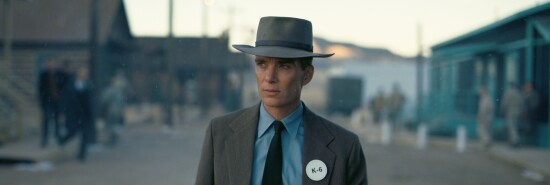
What if we hadn’t bombed Hiroshima? Oppenheimer doesn’t need to ask
Tiana Lowe Doescher
Video Embed
As the name suggests, Christopher Nolan’s latest blockbuster, Oppenheimer, is not a meta-commentary on the Red Scare or the complexities of geopolitical game theory. It does not dig into the moral dilemma Harry Truman, who, as vice president, had no idea the Manhattan Project even existed, faced when FDR died, forcing the former to deliberate on whether the Allies should drop the atomic bomb.
And yet, for some reason, some critics are livid that the film Oppenheimer is about the lived experience of J. Robert Oppenheimer and not a diatribe about American imperialism, the suffering of the Japanese, or a complex moral calculus of why we were justified or not in dropping the Fat Man and the Little Boy. Here’s a brief sampling of the dregs of the dullards.
UNCLE SAM ISN’T THE CURE FOR LONELINESS
Nolan’s Oppenheimer does wrestle with the consequences of his creation as a concept, fearing that like Prometheus unleashing the power of fire, the Manhattan Project would portend the nuclear destruction of humanity. But Nolan, the filmmaker, doesn’t seem to cast a definitive judgment on whether the Japanese bombings themselves were justified.
Perhaps the reason is Oppenheimer’s personal ambiguity over the matter. The more obvious explanation is that it’s hard to argue against dropping those two atomic bombs when you consider the counterfactual.
For starters, the Japanese were not remotely ready to surrender to the Allies, and the alternative to dropping the bombs was a full-scale land invasion of the islands. Conventional attacks, including regular bombing, would have resulted in widespread civilian casualties as well as the long-term destruction of Japanese infrastructure.
How long would it have gone on? Without the stunning demonstration of Allied power, it’s unlikely that Emperor Hirohito would have succeeded in securing an unconditional surrender. Recall that the military attempted a coup when Hirohito wanted to surrender after the atomic bombings. It’s not hard to see that the war would have gone on for much longer.
CLICK HERE TO READ MORE FROM THE WASHINGTON EXAMINER
The more important counterfactual relates to the Soviets, who declared war on Japan right after the bombings. A Soviet invasion of Japan, which likely would have persisted absent the bombings, could have resulted in the island’s division, much like that of Germany or North Korea. A communist half of Japan would only add to the death toll of the ideology, which killed 100 million in a century of execution. Furthermore, the mere threat of nuclear war kept the Cold War just that, cold. Although it was the defeated Nazi Party that was the closest of the Axis powers to coming close to a nuclear weapon, there’s no reason to believe that a similarly evil power would later become the first to deploy an atomic bomb had we not first.
The film does not explore this calculation, and, frankly, given how obvious it is, it did not have to explore it. Oppenheimer himself wasn’t meditating over the minutiae of those two decisions but the totality of their implications. Just because we know that someone was going to open the box eventually, and it ought to have been our guy, doesn’t mean that Pandora doesn’t personally agonize over being the one to have to do so.
